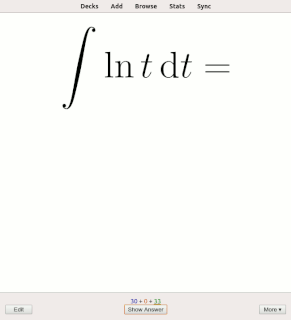Related Research Articles
The Flynn effect is the substantial and long-sustained increase in both fluid and crystallized intelligence test scores that were measured in many parts of the world over the 20th century. When intelligence quotient (IQ) tests are initially standardized using a sample of test-takers, by convention the average of the test results is set to 100 and their standard deviation is set to 15 or 16 IQ points. When IQ tests are revised, they are again standardized using a new sample of test-takers, usually born more recently than the first. Again, the average result is set to 100. However, when the new test subjects take the older tests, in almost every case their average scores are significantly above 100.

An intelligence quotient (IQ) is a total score derived from a set of standardized tests or subtests designed to assess human intelligence. The abbreviation "IQ" was coined by the psychologist William Stern for the German term Intelligenzquotient, his term for a scoring method for intelligence tests at University of Breslau he advocated in a 1912 book.

Psychology is the scientific study of mind and behavior. Psychology includes the study of conscious and unconscious phenomena, including feelings and thoughts. It is an academic discipline of immense scope, crossing the boundaries between the natural and social sciences. Psychologists seek an understanding of the emergent properties of brains, linking the discipline to neuroscience. As social scientists, psychologists aim to understand the behavior of individuals and groups. Ψ is a Greek letter which is commonly associated with the science of psychology.

Psychological statistics is application of formulas, theorems, numbers and laws to psychology. Statistical methods for psychology include development and application statistical theory and methods for modeling psychological data. These methods include psychometrics, factor analysis, experimental designs, and Bayesian statistics. The article also discusses journals in the same field.

Psychometrics is a field of study within psychology concerned with the theory and technique of measurement. Psychometrics generally refers to specialized fields within psychology and education devoted to testing, measurement, assessment, and related activities. Psychometrics is concerned with the objective measurement of latent constructs that cannot be directly observed. Examples of latent constructs include intelligence, introversion, mental disorders, and educational achievement. The levels of individuals on nonobservable latent variables are inferred through mathematical modeling based on what is observed from individuals' responses to items on tests and scales.
A statistical hypothesis test is a method of statistical inference used to decide whether the data at hand sufficiently support a particular hypothesis.

Psychological testing is the administration of psychological tests. Psychological tests are administered by trained evaluators. A person's responses are evaluated according to carefully prescribed guidelines. Scores are thought to reflect individual or group differences in the construct the test purports to measure. The science behind psychological testing is psychometrics.

Albert Bandura was a Canadian-American psychologist who was the David Starr Jordan Professor in Psychology at Stanford University.

Educational Testing Service (ETS), founded in 1947, is the world's largest private nonprofit educational testing and assessment organization. It is headquartered in Lawrence Township, New Jersey, but has a Princeton address.
Classical test theory (CTT) is a body of related psychometric theory that predicts outcomes of psychological testing such as the difficulty of items or the ability of test-takers. It is a theory of testing based on the idea that a person's observed or obtained score on a test is the sum of a true score and an error score. Generally speaking, the aim of classical test theory is to understand and improve the reliability of psychological tests.
Louis Leon Thurstone was a American pioneer in the fields of psychometrics and psychophysics. He conceived the approach to measurement known as the law of comparative judgment, and is well known for his contributions to factor analysis. A Review of General Psychology survey, published in 2002, ranked Thurstone as the 88th most cited psychologist of the 20th century, tied with John Garcia, James J. Gibson, David Rumelhart, Margaret Floy Washburn, and Robert S. Woodworth.
Level of measurement or scale of measure is a classification that describes the nature of information within the values assigned to variables. Psychologist Stanley Smith Stevens developed the best-known classification with four levels, or scales, of measurement: nominal, ordinal, interval, and ratio. This framework of distinguishing levels of measurement originated in psychology and is widely criticized by scholars in other disciplines. Other classifications include those by Mosteller and Tukey, and by Chrisman.

The testing effect suggests long-term memory is increased when some of the learning period is devoted to retrieving information from memory. It is different from more general practice effect, defined in the APA Dictionary of Psychology as "any change or improvement that results from practice or repetition of task items or activities."
In psychometrics, criterion validity, or criterion-related validity, is the extent to which an operationalization of a construct, such as a test, relates to, or predicts, a theoretical representation of the construct—the criterion. Criterion validity is often divided into concurrent and predictive validity based on the timing of measurement for the "predictor" and outcome. Concurrent validity refers to a comparison between the measure in question and an outcome assessed at the same time. In Standards for Educational & Psychological Tests, it states, "concurrent validity reflects only the status quo at a particular time." Predictive validity, on the other hand, compares the measure in question with an outcome assessed at a later time. Although concurrent and predictive validity are similar, it is cautioned to keep the terms and findings separated. "Concurrent validity should not be used as a substitute for predictive validity without an appropriate supporting rationale." Criterion validity is typically assessed by comparison with a gold standard test.

Quantitative psychology is a field of scientific study that focuses on the mathematical modeling, research design and methodology, and statistical analysis of psychological processes. It includes tests and other devices for measuring cognitive abilities. Quantitative psychologists develop and analyze a wide variety of research methods, including those of psychometrics, a field concerned with the theory and technique of psychological measurement.
A computerized classification test (CCT) refers to, as its name would suggest, a test that is administered by computer for the purpose of classifying examinees. The most common CCT is a mastery test where the test classifies examinees as "Pass" or "Fail," but the term also includes tests that classify examinees into more than two categories. While the term may generally be considered to refer to all computer-administered tests for classification, it is usually used to refer to tests that are interactively administered or of variable-length, similar to computerized adaptive testing (CAT). Like CAT, variable-length CCTs can accomplish the goal of the test with a fraction of the number of items used in a conventional fixed-form test.

Shlomo S. Sawilowsky was professor of educational statistics and Distinguished Faculty Fellow at Wayne State University in Detroit, Michigan, where he has received teaching, mentoring, and research awards.
Ammons Quick Test (QT) is an intelligence test that was designed in 1962 by Robert B. Ammons and his wife Carol H. Ammons. This test has been used for many years to help assess premorbid intelligence. It is a passive response picture-vocabulary test.
Novick is a surname originating from Belarus which translates to "a newcomer to a place". The name has Chech and Slovakian origin as well.. The Novick last name is most common in the United States, Israel and Argentina.
Quinn Michael McNemar was an American psychologist and statistician. He is known for his work on IQ tests, for his book Psychological Statistics (1949) and for McNemar's test, the statistical test he introduced in 1947.
References
- ↑ "Melvin R. Novick" . Iowa City Press-Citizen. May 22, 1986. p. 3. Retrieved October 26, 2018– via Newspapers.com.
- ↑ Angoff, William H. (1987). "Melvin R. Novick (1932-1986)". American Psychologist. 42 (7): 754. doi:10.1037/h0090791.
- ↑ Linn, Robert L. (1987). "Melvin R. Novick: Contributions to the Theory and Practice of Educational and Psychological Measurement". Journal of Educational and Behavioral Statistics. 12 (1): 11–20. doi:10.3102/10769986012001011. S2CID 120367075.